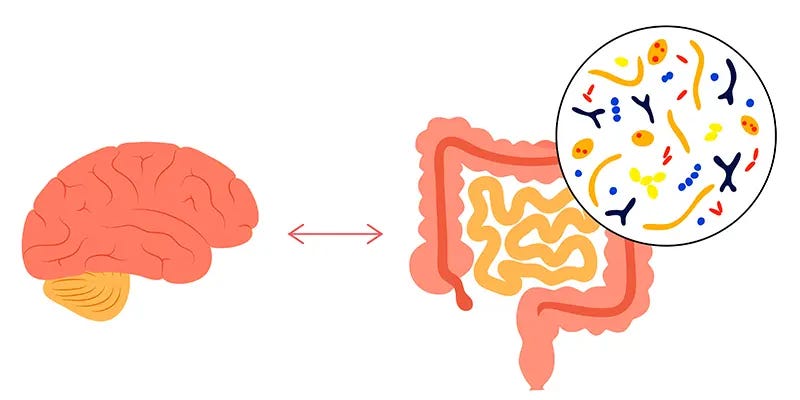According to new research, the bacteria in our gut, known as gut microbiota, play an important role in brain injury and healing after a stroke.
Taking particular types of prebiotics and probiotics can help with brain injury, inflammation, gut bacteria imbalances, and intestinal health.
However, we still don't know whether prebiotics, probiotics, or synbiotics (a combination of both) perform best for particular conditions, or how they operate.
In this study, scientists tested a new synbiotic formulation containing multiple strains of probiotics
- Lactobacillus reuteri UBLRu-87
- Lactobacillus plantarum UBLP-40
- Lactobacillus rhamnosus UBLR-58
- Lactobacillus salivarius UBLS-22
- Bifidobacterium breve UBBr-01
- and prebiotic fructooligosaccharides (FOS)
FOS are extracted from the blue agave plant and fruits and vegetables such as bananas, onions, chicory root, garlic, asparagus, jícama, and leeks. Some grains and cereals, such as wheat and barley, also contain FOS. The Jerusalem artichoke and its relative yacón, together with the blue agave plant, have been found to have the highest concentrations of FOS of cultured plants. (See more)
They used a rat model of stroke called middle cerebral artery occlusion (MCAO).
Before producing a stroke, they gave the synbiotic to the rats for three weeks.
Three days after the stroke, the rats' sensory and motor abilities improved by the synbiotic treatment.
- It halted the death of brain cells in the damaged area and
- Diminished the extent of the stroke's brain damage.
The synbiotic therapy also
- Restored the levels of proteins that support intestinal integrity
- Reversed the elevated amounts of certain proteins and chemicals linked to brain inflammation and cell death.
- Increased the abundance of good bacteria
- Reduced harmful bacteria
Rats, not human beings, but these findings suggest that the new synbiotic preparation has the potential to improve neurological dysfunctions caused by stroke by influencing the communication between the gut and the brain in rats.
Source:
Rahman Z, Bhale NA, Dikundwar AG, Dandekar MP. Multistrain Probiotics with Fructooligosaccharides Improve Middle Cerebral Artery Occlusion-Driven Neurological Deficits by Revamping Microbiota-Gut-Brain Axis. Probiotics Antimicrob Proteins. 2023 Jun 26. doi: 10.1007/s12602–023–10109-y. Epub ahead of print. PMID: 37365420.

Comments
Post a Comment